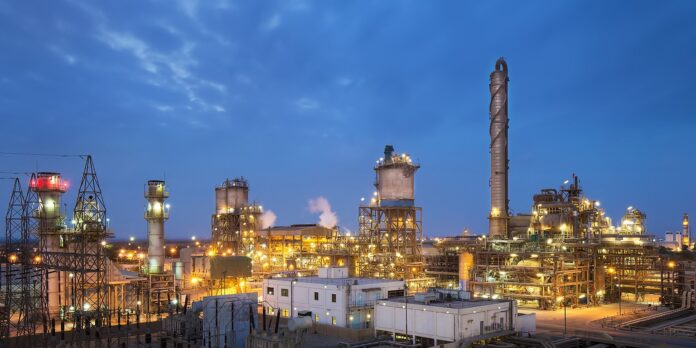Among the many legacies left by the British in India was a vast tapestry of corporations that had set up shop in the subcontinent. In Pakistan, no single company represented the heights of colonial corporate ambitions more than Imperial Chemical Industries (ICI).
For more than half a century after the partition of 1947, the ICI name dominated corporate circles in Pakistan. ICI attracted the best talent, set standards across industries, and their products from paints to plastics were highly sought after. But the past 20 years have seen the company go from one of the largest multinational conglomerates in the country to a bevy of smaller companies that have been bought and sold twice over. The brand name ICI has also all but finished, existing only as a small watermark on Dulux paint boxes.
Lotte Chemicals was once a small part of the Gargantua that was ICI. It was such a small part that it was only one division of ICI’s presence in Pakistan, which in itself was a small slice of the company’s global business empire. Over the past week, official confirmation came through that Lotte’s South Korean sponsors had sold a 75% stake in the company to a Dubai based joint venture between Montage Oil and AsiaPak Investments. Montage is a long-time oil broker in the UAE of Pakistani origin with liquid storage facilities in Sharjah, Karachi, Lahore, Ho Chi Minh City, and Qingdao. They also have dry storages in Vietnam and the UAE. While Montage has generally kept a low profile, AsiaPak is headed by Shaheryar Chishty, a former banker who has made a habit of pursuing orphan investments and has turned AsiPak into an investment vehicle with stakes in Thar Coal and the majority shares in K-Electric. He is also the owner of Daewoo Bus Service in Pakistan.
The deal went through for $69 million, or around Rs 17 per share of the publicly listed company. Lotte’s share price the day the deal was announced was Rs 27.75, which would indicate that the South Koreans are selling it at a discount. The negotiations for the deal have been going on since February, and the lowest share price for Lotte in the past year has been Rs 16.71 in May 2025. This is starkly different from the sale of a different limb of ICI in 2012, when the Lucky Group bought a 75% stake in ICI Pakistan’s chemical business for $152 million at a premium of 29.7%. What makes this deal even more interesting is the fact that the Lucky Group had actually signed a share purchase agreement with Lotte back in 2023 to buy this same 75% stake in the plastics company for a significantly higher Rs 31.29 per share.
This indicates that Lotte South Korea wanted a quick exit from their plastics business in Pakistan. Given how the company had to shut its plant down twice in 2023 and the continuing difficulty of doing business in Pakistan for global players, the rush makes sense. What makes this ‘exit’ a little different, however, is that it is not a complete divestment. Lotte has dropped out of their main business but have kept some of the other businesses they had acquired in Pakistan in the past decade including a bottling company and Kolson Foods.
The only question that remains is what is left of ICI, and how do these separate entities plan on doing business in a country where it is becoming increasingly difficult for both domestic and international players. The content in this publication is expensive to produce. But unlike other journalistic outfits, business publications have to cover the very organizations that directly give them advertisements. Hence, this large source of revenue, which is the lifeblood of other media houses, is severely compromised on account of Profit’s no-compromise policy when it comes to our reporting. No wonder, Profit has lost multiple ad deals, worth tens of millions of rupees, due to stories that held big businesses to account. Hence, for our work to continue unfettered, it must be supported by discerning readers who know the value of quality business journalism, not just for the economy but for the society as a whole.To read the full article, subscribe and support independent business journalism in Pakistan









